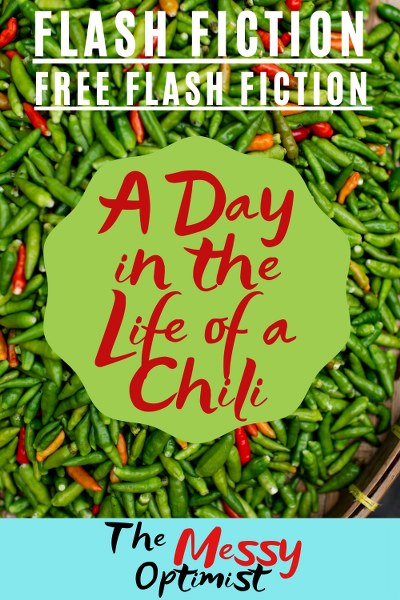Here, There, Everywhere
By Roopa Swaminathan

Here, there, everywhere.
The house was still. It was always still. She could hear her mother’s crochet needles when they dropped on their teak wood floors from one floor below. They could buy an entire city but Ma knit sweaters for her. Her arthritic hands and wrists hurt but she did for her chellam (darling). Not that they ever had winters where they lived.
For as long as she could remember she’d had her own set of plates, cups, forks, knives. All in gold. Not gold-plated but solid gold. 24 karat gold. They were washed with fluorescent pink 3M kitchen gloves that covered the elbows of the many who worked in their mansion. She’d never owned anything worn by someone else or touched by someone else’s skin. She was untouched in more ways than one. Her family did Covid protection protocols years before it became a thing. Everyone washed their hands with soap and used hand sanitizers, they sprayed her room with Lysol diluted with water, they wore gloves before touching her or touching anything that would be touched by her, worn by her.
“We’re protecting you, my chellam,” Ma and Baba said in unison. They called it love.
Here, there, everywhere.
Baba had diabetes and high blood pressure. So, he was on a strict salt-free diet of plain rice, salt-less lentils and spinach, cauliflower, and broccoli. Ma recently became vegan (trying to lose weight) and nibbled on fresh apples, mangoes, guavas, cashew nuts and drank sugarcane juice – all from their own farms. But they had four different chefs at the mansion. The first one was a Cordon-bleu educated two-star Michelin chef that Baba had stolen away from a popular Paris eatery to their mansion and who cooked exquisite French cuisine including crepes, Coq au vin, Cassoulet that she barely could do justice to. The second one made wholesome Punjabi rajma chaval and sarson da saag, the third made Mughlai mutton biriyani and seekh kabab and the fourth one made South Indian idlis, dosas, sambhar, and chutney to order.
But all she wanted was to bite into hot batata vadas with green chilies like she saw the workers from their farm eat for lunch as her chauffeur drove her back home from school for lunch every day. Her mouth started to water when she imagined how the boiled and mashed potatoes mixed with red chili powder and cumin and dunked in a liquid chickpea dough and then fried in oil would taste like. But Ma got up at 6 in the morning and made Eggs Benedict for her. Then she’d make her favorite navratan mutton korma for lunch. And feed her.
Wherever you look…here, there, everywhere. It’s all ours.
She looked every day. She stood in her own personal terrace adjoining her 1500 sq foot bedroom on the second floor of their palatial mansion perched atop a small hill. From there she saw sunflower fields on one side (the black seeds in the middle of the flower surrounded by the yellow petals reminded her of the bright yellow and black taxis on Indian roads – which she’d wanted to travel in but was never allowed to), the lush full-of-fragrance turmeric fields on the other and the sweet, sweet tasting smell of sugarcane fighting for its rightful place with smells of fresh tea leaves from beyond.
Wherever she looked, whatever she smelled…it was all theirs.
She was their lucky mascot. It was after her birth that all of Baba’s gambles paid off. They had their first best sugarcane harvest the year she was born and Baba never looked back after that. They’d tried for more kids. “But God didn’t bless us with any. But isn’t this great. It’s just us. You, me and Baba. Against the whole world. We don’t need anyone else,” Ma said.
She had more people waiting on her than the president of the US. When she yawned, they rushed and felt her forehead to see if she was running a temperature. If she coughed the entire house was fumigated from top to bottom to make sure whatever virus or bacteria dared to enter the house was dispatched strongly. Her chicken was cut into tiny pieces so she could chew comfortably. Her soup was warm enough that it tasted like a mother’s hug but not so hot that it scalded her tongue.
She’d much rather have felt her mother’s actual warm hands engulfing her instead.
Here. There. Oh, everywhere.
She looked out from inside her chauffeur-driven car. The windows were tinted dark so no one could look in. She smushed her face against the glass window next to the backseat and took in the beautiful, breathtaking countryside that belonged to them.
Her chauffeur would drive down the mountain and turn around a steep bend and, on that junction, sat a ramshackle and dilapidated straw-thatched-roof tea stall. The aluminum vessel burning on top of a single stove top had more crevices and dings than her grandmother’s 92-year-old face.
She asked to drink a cuppa once and heard shrieks in response.
“Nooo, no. Have you seen the cups?” they screamed back in complete and utter horror. “They’re chopped, dirty…they have so many stain marks on them. The tea stall guy washes the cups in a single bucket of water over and over again. The saucers don’t match the cups. It’s disgusting. Who even knows how many lips those cups have touched before?”
Lips touching the cups. She wet her lips with her tongue at the image and swallowed. Lips touching the cups. That must be what kissing must be like. She yearned. For her lips to touch a surface that had touched someone else. Six degrees of separation in kissing she giggled to herself. And then laid her head back against the black leather seat of their Mercedes G-Class GLA SUV.
And repeated what she’d been told her entire life. For as far as her eyes could see…here, there, everywhere…everything belonged to them.
So much space. So many smells. And she tried to breathe.
***
The apartment building was on the main road. It took their taxi 45 minutes to make the 300 feet distance. There were cars, trucks, buses, cycles, auto rickshaws all stuck bumper-to-bumper and they were all honking. As if honking at someone as stuck as they were before them would make the waiting easier. Or make the traffic move faster.
She was fascinated at the crowds hustling and bustling and mothers tightly holding onto their blue-and-white school uniformed 6-year-olds with their crossbody satchels inveigling their way through the tiny spaces between the jampacked vehicles to quickly get from one side to the other. There were so many knocks on the glass window of their taxi as young teenaged girls wearing colorful half-sarees sold jasmine flowers and rose garlands. She tried to roll down the glass window, but he stopped her.
“They won’t go away till you buy something. Don’t open the window,” He admonished gently.
She’d never seen so many people so close to her…ever. Only in the movies. She could barely hear him speak there was so much noise. Screechy sounds of tires as people tried to squeak that one extra centimeter ahead as if that would miraculously get them out of the gridlock. People talking in many different languages on their cell phones. Sounds of clearing throats, sneezing, coughing, blowing noses filled with phlegm, roadside shopkeepers splashing water in front of their stores and wiping the excess water with plastic brooms making chak chak sounds…so much sound.
She closed her eyes and felt it all in every nook and cranny in her body. And shivered.
They finally reached his home. It was an apartment and was smaller than her bedroom at the mansion. And seven people, including her, would live in it now. Her in-laws, his brother, wife and child and she and her new husband. And the newlyweds would share the second bedroom with the other couple. It was a mere 100 sq ft room separated into two sections in the middle with a heavy curtain.
“Sorry,” he apologized. “I’m saving up for a down payment for our own apartment. Till then mom and dad have allowed us to stay with them. Rent free.”
She smiled. “How gracious of them,” she said softly.
The other couple decided to crash in the living room with makeshift air mattresses to give the newlyweds some space for the first few nights.
She went inside the bedroom and slid the curtains open to see ‘their side’. It was long and narrow and just enough space for a tiny single bed set against one corner.
“Sorry. We will be so tight and cramped together,” he said apologetically. “You’re used to so much space around you. Space. And quiet. But…”
She squeezed his hand gently and her eyes went back to the vista in front of her. How tight a space. How tiny a bed. She imagined how that night would be like. Both of them would be naked and their hands and legs intertwined tightly with one another because if they didn’t, they would fall off the bed and probably get stuck in mid-air between the bed and the nightstand. She put out both her hands and she could touch the wall on one side and the thick curtain on the other.
She beamed.
She saw the wobbly and tiny nightstand at the foot of the bed with chipped fluorescent blue Formica covering its meager surface and one of its four legs short by a few centimeters (and DIYed with tiny pieces of cardboard stuck together with cellophane tape to make the difference in height) bravely hosting a beat-up lamp that flickered on and off and two cups of tea. The chai (tea) was so piping hot that the smoke from the cup clogged the tiny mirror hanging on the wall. The cup (white) and saucer (brown) did not match. There were decades worth of stains that no amount of Windex could wipe clean.
Who knows how many lips had touched the rims of those cups? I’ll be kissing so many more people tonight, she giggled.
“Sorry? Did you say something?” He asked nervously.
She shook her head. She picked up one cup and took a sip of the hot pale brown liquid. And saw two chips and a crack that started at the rim and went all the way to the bottom. “This cup may break anytime,” she pointed out wondrously.
He shook his head smiling. “Don’t worry. That crack has been on that cup for twenty years now. If anything, the crack has molded the cup tighter, made it even stronger. It would break if we deliberately smashed it on the floor. But on its own? It will never separate.”
She nodded and took another sip of the divine-tasting chai and closed her eyes.
“We can at least afford better cups. But somehow, chai tastes so much better in these cups,” he said sheepishly. “It’s filled with mom’s love, and I’m so used to drinking chai from these cups that I…”
She turned around and gave him a beatific smile. “It’s perfect,” she said and squeezed his hand.
She looked around the 50-sq-ft space.
Here, there, everywhere.
And she breathed.



